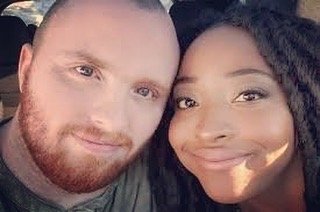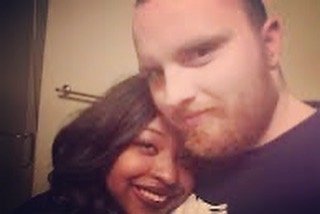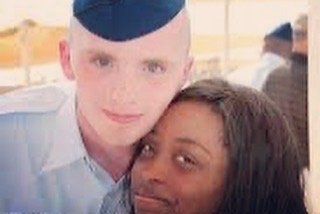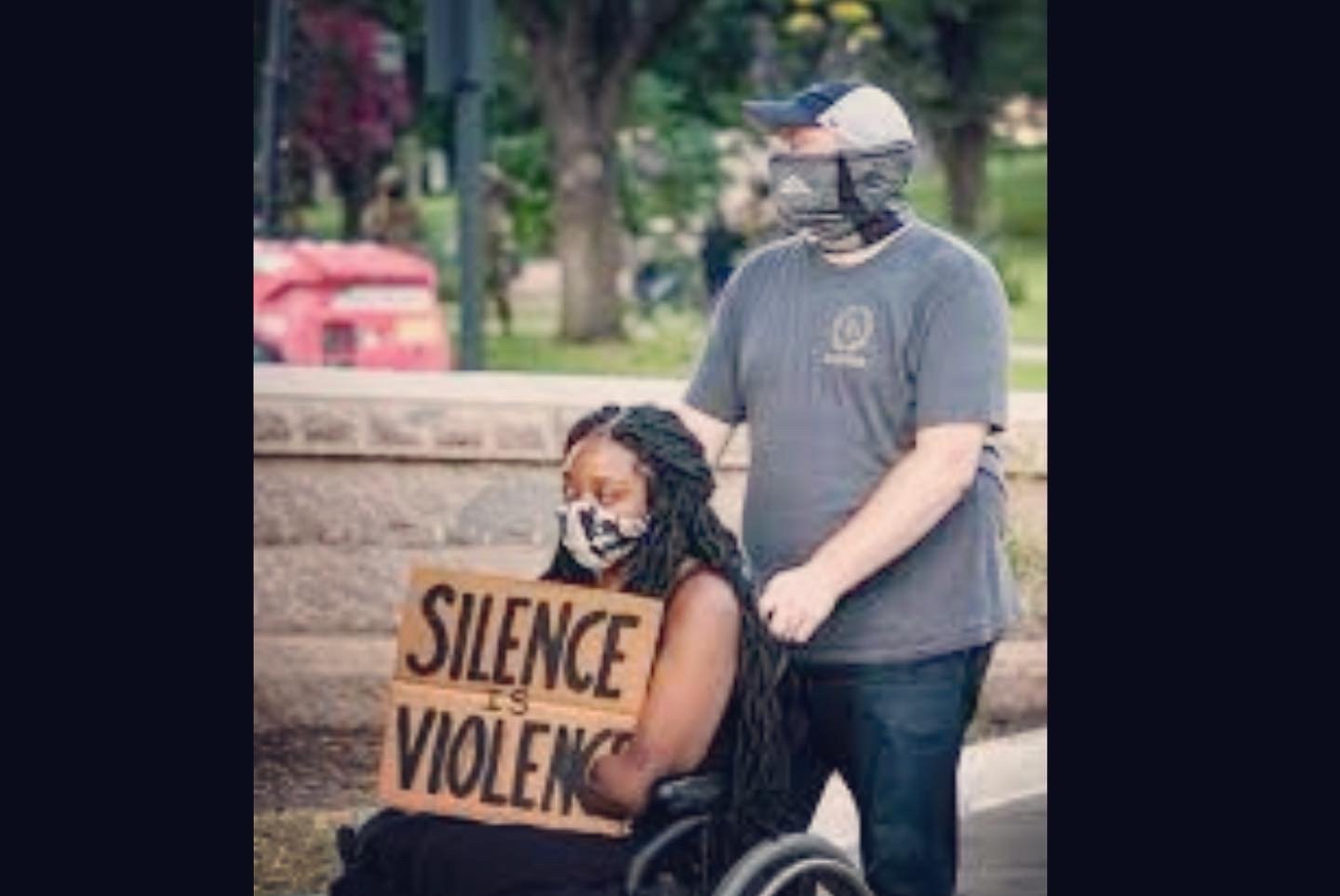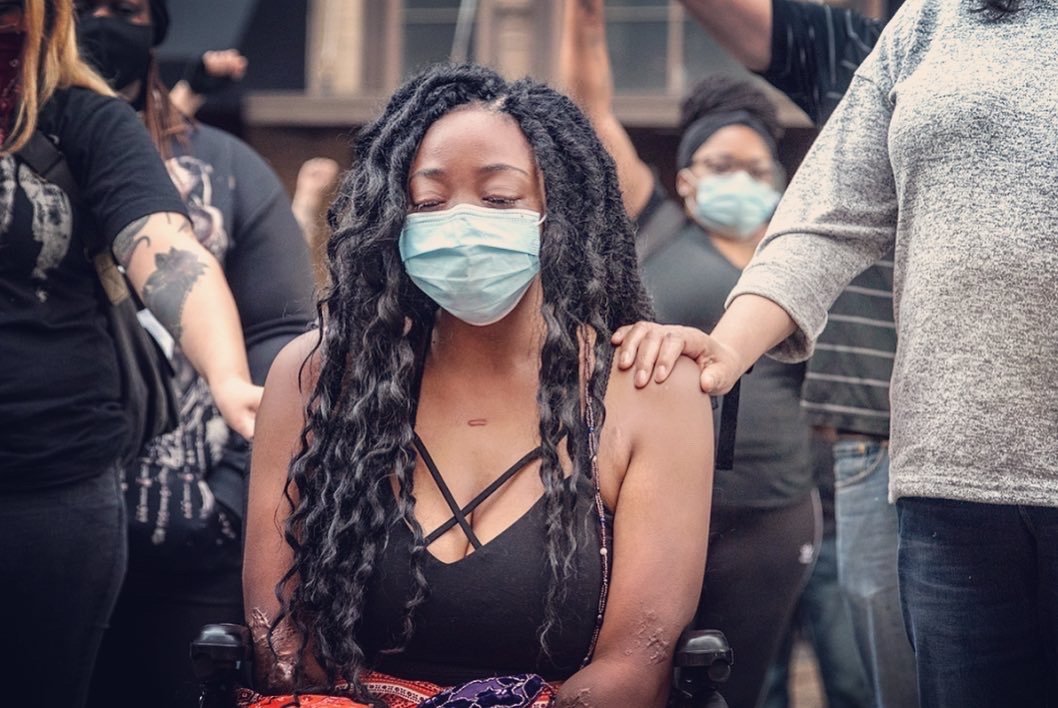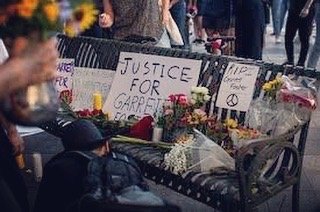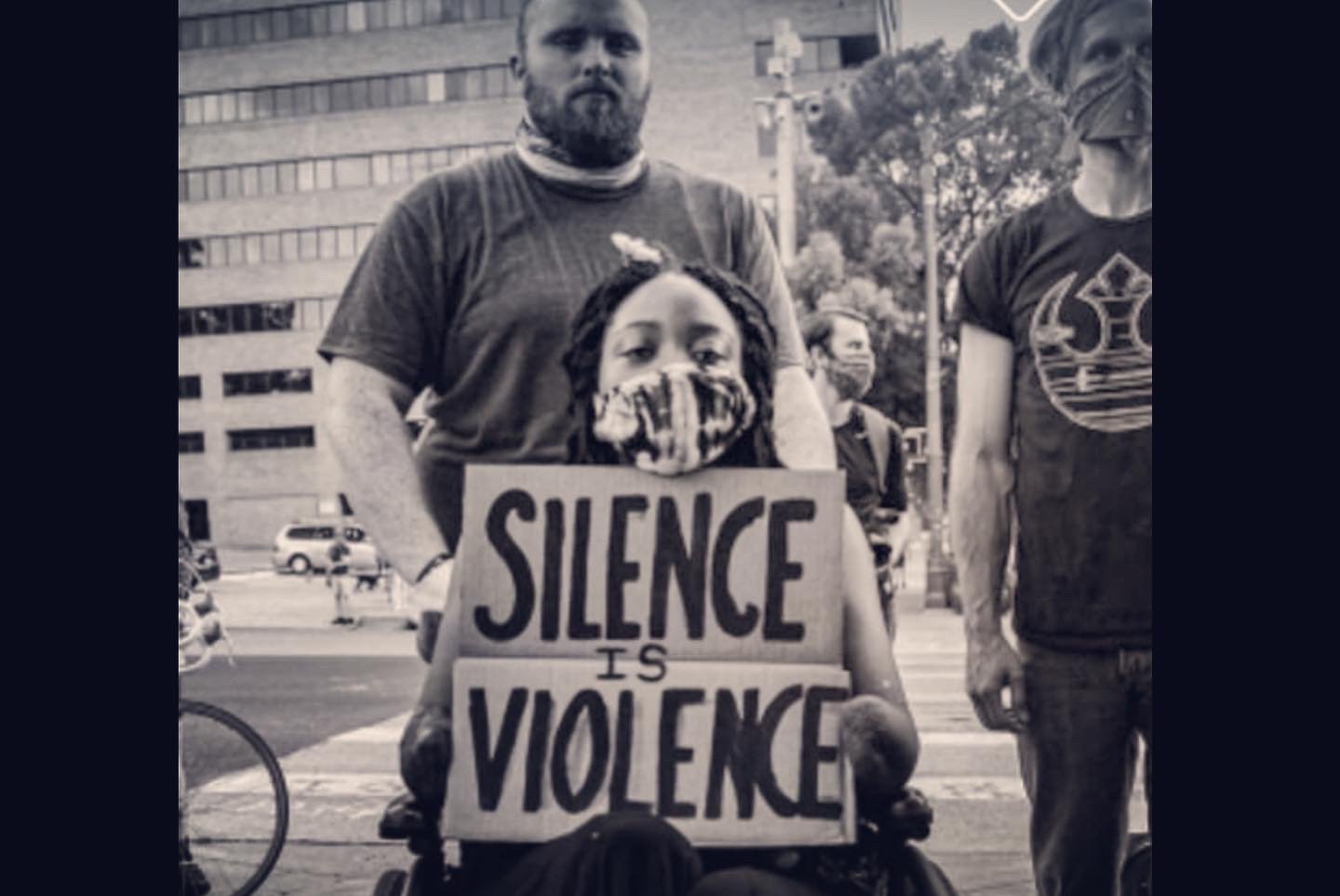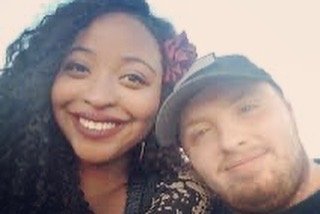When the pandemic began, I earnestly wanted to isolate, and do all I could to protect those around me.
And then George Floyd died.
When George Floyd was murdered, and people around the world saw it with their own eyes, we rose up in a way many of us had not seen in our lifetime.
There are legions of people over the ages, who have worked to rally people toward common, collective action — but no call, no matter how urgent, can match the urgency of witnessing an embodiment of the State, murder a man in cold blood. The streets were filled with bodies, and local organizers in hundreds of cities and towns, worked to channel the pain and justifiable rage of strangers, into a cohesive whole.
On the afternoon of July 25th 2020, I got in my old pickup, and drove to the protest that had been happening each day in Austin. As I walked up, there was a young woman on the megaphone, passionately articulating the injustices of mass incarceration in America, and a moderate sized crowd was around her, cheering on her every word. The energy was strong, the vibe was good, and I was grateful to be walking toward a community of conscience.
There was one glaring exception. And this was the large man standing in front of the crowd, his face almost entirely covered by a mask and sunglasses, carrying a military grade semi-automatic weapon.
When communities come together to protest for justice, there is often a contingent of folks who are white, and I have often felt inclined to go and meet them, and inquire. Right or wrong, this has simply been the way I’ve approached it. So before walking up to the crowd, I walked up to the guy with the big gun, and asked for his name.
Garrett, he says. Garrett Foster.
He pulled down his mask to reveal a good sized grin, and shakes my hand. I ask what he’s doing there, and with the sincerity of a man who has searched his soul, he smiles and says — I am here to protect the people.
I believed him. Right away.
In a context like that, surrounded by protestors who are generally people of color and often led by women, my overwhelming instinct was to assume he was a bad actor, out there to intimidate the community, who were letting their will be known. But from the moment we met, it was clear that these people were his people, and that he was willing to do whatever was necessary, to ensure they had the freedom to voice their protest, and demand justice.
I soon met his fiancé, a beautiful woman with bright braids and a smile that could light up a hot day in July. They met as teenagers and fell in love, a young white man and a young Black woman, together in texas.
Those who have experienced the generational racism of this state, know how hard their journey must have been, simply for loving the person they loved. But the challenges of two people and cultures colliding, would be just the beginning of the obstacles they would face in their young lives.
Whitney Mitchell developed an infection that led to her limbs being removed, and a few months later, Garrett was sent to basic training. From everything I’ve heard or learned since that fateful day, their time apart was deeply challenging for both of them. But after he was discharged at 19, Garrett became her primary caretaker, and worked faithfully to care for her each day after.
When George Floyd was killed, Whitney told Garrett she wanted to be at the protests each and every day. Amidst a global pandemic, and a partner who needs such support, it’s hard to consider how difficult this must have been. We don’t talk too often about the logistics of challenging injustice. But just the gasoline involved, in driving back and forth. The parking fees. The time given, when one could otherwise be preparing a meal, or taking care of a loved one, or earning additional income. To march is to walk, and for a person in a chair, that means someone has to push. And in the case of Whitney and Garrett, they marched together every single day.
That night was powerful. I remember feeling that after more than two decades of protesting in Austin texas, there was finally an infrastructure forming, of mutual support, mutual aid, consistency, decentralized leadership, and resonant connection with the community. All afternoon, it felt like the tides were turning, and the people were beginning to win.
We marched for hours. From the Austin Police Department, up 8th street, down Cesar Chavez, and stumbling onto a dinner at the W Hotel, hosted by the mayor. We stayed outside for some time, long enough to be sure we were heard, then continued toward Congress Ave.
As a former student at the university of texas, my first public protests were held on Congress Avenue. I cut my teeth in those early days, learning to support the community, and gather people together for demands that could only be made collectively. I remember feeling a profound sense of pride, in being back on that road so many years later, surrounded by compatriots once again, in fighting for a better world.
It was a feeling of euphoria. A feeling of limitlessness. As though each person marching was a sibling, a sister or brother long lost, but now we had all finally found one another.
And then everything changed.
When we got to the intersection of Congress Avenue and 4th Street, a car began honking and jolting toward the protestors walking across the street, with hard lurches forward, and then abrupt braking. Hard lurches forward, and abrupt braking. As he did so, the crowds began to scream and run in all directions. The sun had just set to the west, and darkness was only recently surrounding us. As it did, the car burst through our community, and confusion and panic rang out.
It all happened very fast. But as I remember it, the car pushed through the crowd crossing fourth street, and drove through an intersection filled with human beings. Families. Teenagers. Elders. Parents. And a woman named Whitney Mitchell in a wheelchair.
I don’t know if the driver was targeting Garrett. I don’t know if the driver was targeting Whitney. I don’t know if he knew, he was driving directly toward another veteran of our armed forces, who was marching in solidarity with the community, and protecting his lifelong love.
What I do know is the driver turned left through a sea of human beings, rolled down his window, and shot Garrett Foster on Congress Avenue.
What happened next I’ll never forget. Whenever bullets are shot nearby, it sends a shock through everyone’s body, simply because of the noise. But when those bullets are shot into a crowd of people in the middle of a large avenue, it was like an explosion of human energy. Tears and shrieks and terror were flung from our lungs, and no tears were as loud as hers.
Humans hid behind trash cans and street lights, but Whitney was in the middle of the Avenue, with town lake behind her, and the marbled capital before her, just crying. The tears echoed off the buildings, architecture that has likely seen much death over the years, but rarely so blatant in its hatred for people. As the ringing cleared, everyone began doing in their own way, whatever it was that was needed. To support themselves, and to protect one another.
It has been nearly three years since that day. Rarely has a day gone by when I do not think of Garrett, and think of his bride. He is a hero. There can be no other word. Garrett is a man who fell in love at a young age, and honored that love to his last breathe. Garrett is a man who trained and served his country in uniform. Garrett is a man who put his body on the line, each and every day, from the day George Floyd was killed, to the day he was as well. To demand justice. To protect his wife. To serve the people.
Garrett represents the best of us. He is why we all know, deep in our hearts, that freedom will one day come for all people. Because somehow, in every generation, heroes rise.
The verdict came through weeks ago, and the driver was found guilty by a jury of his peers. Guilty of murder. It is the right verdict. The driver charged at human beings, and killed one of us.
Whether our justice system will offer anything of value or redemption in what comes next, is of course a subject we should all consider. But for a moment, there was a sense that perhaps there would be justice.
My assumption was folks would act out their characters, and make caricatures of those involved. The great show of course, must go on. But I didn’t fully understand the degree to which the Governor was ready to welcome vigilante murder, into our public square.
The Governor has said he will seek a pardon. Not for teenagers wrongfully targeted, or mothers locked from their children for the crime of being poor — but for a murderer, who sought to kill those who challenged the deadly structure of modern policing.
All of this is now very transparently, aligned with the increasing fascism of the Republican Party.
My family were killed by Nazis. Those who continue to tolerate a party that is working to ban books, ban artistic expression, ban trans people and expressions of gender, ban the fundamental sovereignty of human beings over their own body, ban an honest telling of our history, ban the right of assembly and protest, and now allow for murder, are being radicalized in ways many may not fully understand. White Christian men, unwilling to listen the Whitney Mitchells of our community, are being told they can use their guns to demand everyone else be forced to listen to them.
Just as the Crusades and Colonial Powers did before, white christian men have often been called upon to be the foot soldiers of fascism. Defending the State, rather than their neighbors. Defending unconscionable crimes, in the name of land and symbol.
In the age of connectivity across languages and borders, I will continue to hold hope that enough human beings will choose as Garrett Foster chose. To protect the People and the Planet with their lives.
Whatever happens with Greg Abbot, the message has been sent clearly. And few among us could say there is not more fear in standing up to the State today, than there was the day Garrett Foster was shot down.
But fear is how fascism wins. And so we must cultivate courage. For ourselves and our community. Cultivate a strength within, by knowing the legacy we stand on. A legacy of challenging power, far older than the nation itself. A legacy from which the giants of this land were born.
We must protest. We must resist.
When a friend is killed.
Or a stranger.
When a neighbor is killed.
Or someone further away.
When our tax dollars are used to fund death and destruction. Oppression and war. Police violence and a racist system of incarceration.
When our collective resources are used to kill us. When a badge allows for murder.
Those who rise and those who do the excruciating work of putting their bodies on the line, day after day after day, represent the best of humanity. They are the white blood cells, directly facing the problem. They are the pointed tip, at the end of an arrow or sword. They are the olive branch, welcoming our society back to balance, and peace. And they have often been the most fundamental and necessary component of so many movements, which have achieved social progress before.
They must be protected.
The right to protest is sacred. It is essential.
It is as central to Liberty, as the freedom of speech, and the freedom to pray as your soul calls.
Garrett Foster will continue to be a hero for those who love freedom, far longer than this petty use of power by our Governor will be remembered. But as our children suffer from fear in schools, and our protestors suffer from fear in the public square, all who do not fit the colonial mold, live in increasing levels of risk and fear as well.
In a time of information distortion, when storytelling has replaced so many mediums of journalism and sharing, it can often be hard to understand who’s fighting for what, and who’s values align with those of your conscience. It may at times seem easy, to simply default to those who talk like you, or look like you, or live near your family.
But if you happen to have the great joy of having a child in your life, and they ever ask you about “the good guys”, remember it’s always those who protect the defenseless, and give their lives for the common good. It’s always those who challenge entrenched power, and demand liberation for a broader and ever growing circle.
It’s always those who protect the people.
Garrett Foster was one of the good guys.
May we all live lives of such courage.
